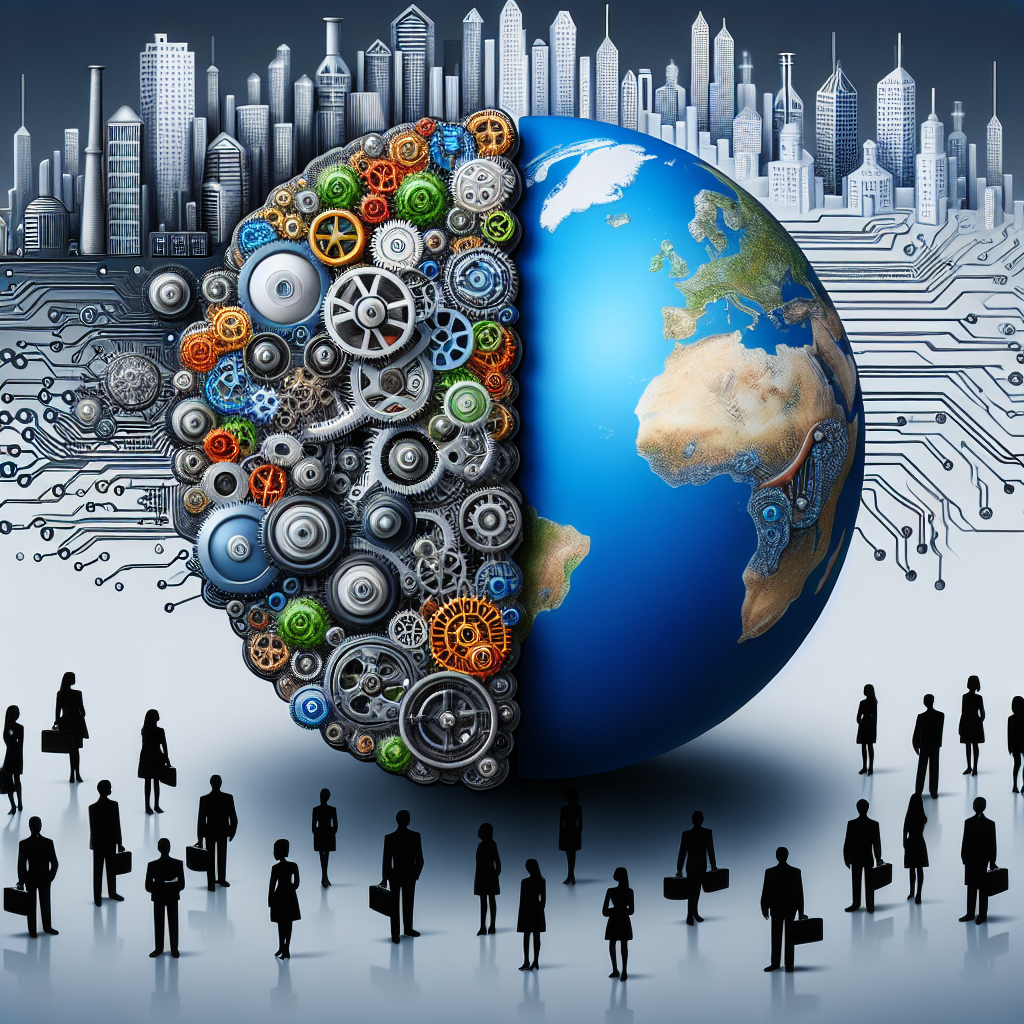Artificial General Intelligence (AGI) is a rapidly advancing field of technology that has the potential to revolutionize society and the economy in ways that we can only begin to imagine. AGI refers to a type of artificial intelligence that possesses the ability to understand, learn, and apply knowledge across a wide range of tasks, similar to the cognitive abilities of a human being. While current AI systems are limited to specific tasks and lack the ability to generalize their knowledge, AGI has the potential to surpass human intelligence and capabilities.
The development of AGI has the potential to bring about significant changes in various aspects of society and the economy. From healthcare and transportation to education and entertainment, AGI can enhance efficiency, productivity, and innovation in ways that were previously thought impossible. However, with these advancements also come challenges and potential risks that must be carefully considered and addressed.
In this article, we will explore the potential impact of AGI on society and the economy, including the benefits, challenges, and ethical considerations that arise with the development of this groundbreaking technology.
Benefits of AGI
One of the primary benefits of AGI is its ability to improve efficiency and productivity across various industries. With its advanced cognitive abilities, AGI can automate complex tasks that were previously performed by humans, leading to significant cost savings and increased output. For example, in the healthcare industry, AGI can analyze medical data, assist in diagnosing diseases, and recommend treatment plans, allowing healthcare professionals to focus on more complex tasks and improving patient outcomes.
AGI also has the potential to revolutionize the transportation industry by enabling the development of autonomous vehicles that can navigate roads safely and efficiently. Self-driving cars powered by AGI technology can reduce traffic congestion, accidents, and emissions, while also providing greater mobility for individuals who are unable to drive themselves.
Moreover, AGI can enhance education by personalizing learning experiences for students based on their individual needs and abilities. By analyzing student data and adapting teaching methods accordingly, AGI can help students learn at their own pace and maximize their academic potential.
Challenges of AGI
While the potential benefits of AGI are vast, there are also significant challenges that must be addressed to ensure its responsible development and deployment. One of the primary concerns is the impact of AGI on the job market and the economy. As AI systems become more capable of performing tasks traditionally done by humans, there is a risk of widespread job displacement and income inequality. It is crucial for policymakers and industry leaders to develop strategies to retrain workers and create new job opportunities in industries that are less susceptible to automation.
Another challenge of AGI is the potential for bias and discrimination in decision-making processes. AI systems are trained on large datasets that may contain biases, leading to discriminatory outcomes in areas such as hiring, lending, and criminal justice. It is essential for developers to implement safeguards and transparency measures to prevent bias and ensure fairness in AI algorithms.
Ethical Considerations of AGI
In addition to economic and social challenges, there are also ethical considerations that arise with the development of AGI. One of the most pressing ethical issues is the potential misuse of AGI for malicious purposes, such as surveillance, cyber warfare, and autonomous weapons. It is crucial for policymakers and researchers to establish guidelines and regulations to prevent the misuse of AGI and protect against unintended consequences.
Moreover, the development of AGI raises questions about the moral and legal responsibility of AI systems. As AI becomes more autonomous and capable of making decisions independently, it is essential to establish clear guidelines for accountability and liability in cases where AI systems cause harm or make unethical decisions.
FAQs
Q: What is the difference between AGI and narrow AI?
A: Narrow AI refers to artificial intelligence systems that are designed for specific tasks, such as image recognition or natural language processing. AGI, on the other hand, refers to AI systems with the ability to understand, learn, and apply knowledge across a wide range of tasks, similar to human intelligence.
Q: How close are we to achieving AGI?
A: While significant progress has been made in the field of AI, achieving AGI remains a long-term goal that is still in the research and development stage. Researchers are working on improving AI algorithms, data processing capabilities, and hardware systems to bring us closer to achieving AGI.
Q: What are the potential risks of AGI?
A: Some of the potential risks of AGI include job displacement, bias and discrimination, misuse for malicious purposes, and ethical considerations related to accountability and liability.
Q: How can we ensure the responsible development and deployment of AGI?
A: To ensure the responsible development and deployment of AGI, it is essential for policymakers, researchers, and industry leaders to collaborate on establishing guidelines, regulations, and ethical frameworks that prioritize safety, fairness, and transparency in AI systems.
In conclusion, the development of AGI has the potential to bring about significant changes in society and the economy, with benefits ranging from improved efficiency and productivity to personalized education and healthcare. However, the challenges and ethical considerations associated with AGI must be carefully considered and addressed to ensure its responsible development and deployment. By working together to address these issues, we can harness the full potential of AGI to create a more equitable, innovative, and sustainable future for all.

